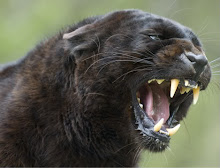


Thanksgiving Day football, once a tradition among the high schools and colleges of America, has more or less faded into oblivion in most sections of the country.But it is still alive in the National Football League in two franchise cities, Detroit and Dallas, where Thanksgiving Day football has become a normal, expected way of life. Beginning in 1966, Dallas has missed playing on the holiday only in 1975 and 1977.
However, when it comes to Thanksgiving Day football, NFL style, most fans first think of the Lions and the tradition that was started in 1934. It was their first year in Detroit after a local radio executive, George A. Richards, had purchased the Portsmouth (Ohio) Spartans and moved the team to Detroit. The Spartans were members of the NFL from 1930 to 1933.With the Spartans, not only was Richards bringing a proven, quality team to Detroit, he was also bringing at least one super-star, Earl "Dutch" Clark, one of the most versatile backs ever to play the game.
Clark had an outstanding supporting cast in the Detroit backfield with a big, talented line anchored by Frank Christiansen.Even though he knew there was some risk in scheduling a game on Thanksgiving Day, Richards also recognized that his Lions were taking a back seat to the baseball Tigers on the sports pages. So as one way of attracting Motor City fans during the team's first season, he opted for the Thanksgiving Day contest.The matchup between the Lions and the World Champion Chicago Bears proved to be an all-time classic.
The 1934 Lions had not allowed a touchdown until their eighth game and entered the game with the Bears with a 10-1 record. But with 11 straight wins, Chicago had an even better record. Still a win would put the Lions into a first-place tie with the Bears with only a game left, a repeat clash with the Bears in Chicago, just three days later on December 2.The 26,000 tickets for the Turkey Day clash in the University of Detroit Stadium, were sold out two weeks in advance of the game. It was estimated that another 25,000 would have attended had there been seats available.
The Bears edged out the Lions 19-16 in the classic holiday struggle and then prevailed 10-7 three days later to clinch the NFL Western Division crown.Not despondent over the last two losses, Richards reasoned that his team had done well in its first year in Detroit. His confidence was rewarded the next year when the Lions won the 1935 NFL Championship. The key game in the title drive came on Thanksgiving Day, when the Lions defeated the Bears 14-2 to clinch the West championship.
Thus the football-on-Thanksgiving tradition became firmly established in Detroit. With the exception of a six-season gap from 1939 to 1944, the Thanksgiving Day game has been played with no interruptions.The Detroit Lions Thanksgiving Day heritage gained national attention in another way, starting with the very first game in 1934. Knowing the publicity potential of radio, Richards along with NBC Radio, set up a 94-station network to broadcast the Lions-Bears showdown. The famous announcing team of Graham McNamee and Don Wilson described the action.
The Cowboys and Thanksgiving.
In the 60s, with the popularity of the NFL increasing on TV, the NFL looked around for another city to host a game on Thanksgiving Day, in order to give the NFL a Turkey Day Double Header.None of the other NFL cities were willing to host the game, because of the potential disruption to their normal Sunday game schedule, especially coming late in the year when the playoffs were right around the corner (the NFL played only 14 games then, with the final regular season game coming in mid December) Tex Schramm, ever watchful for anything that would promote the popularity of the Cowboys, immediately saw the potential of Dallas hosting a Thanksgiving Day game, and how it might become a tradition like the Detroit Lions had established.
So Dallas agreed to host the game when no other NFL team would do it. It immediately became a fan favorite on TV.Ironically, a decade later other teams complained to the NFL that Dallas' hosting the game, and the resultant 10-day break after the game, gave the Cowboys an advantage that other teams didn't enjoy.So the NFL moved the '75 and '76 games to St. Louis. But fans responded with a lack of viewership, so CBS (the NFL's TV network back in the 60s) and the NFL asked Dallas to once again agree to host the game.After the NFL merged with the AFL, NBC (the TV network for the AFL / AFC) also wanted to host a Thanksgiving Day game, and split the double header with CBS. So the NFL agreed that, although Dallas and Detroit would still host a game, one of the teams would host an AFC team, and one would host an NFC team.
NBC would broadcast the game in which either Dallas or Detroit hosted the AFC team. So Dallas hosts an AFC team every other year.By the way, Tex Schramm agreed that Dallas would once again host a Thanksgiving Day game on the condition that the NFL never again move it. So despite the occasional complaint by other teams, Dallas has hosted a Thanksgiving Day game ever since.
Article W / Links Provided By
Eddie ''Catzilla'' Quinn


No comments:
Post a Comment